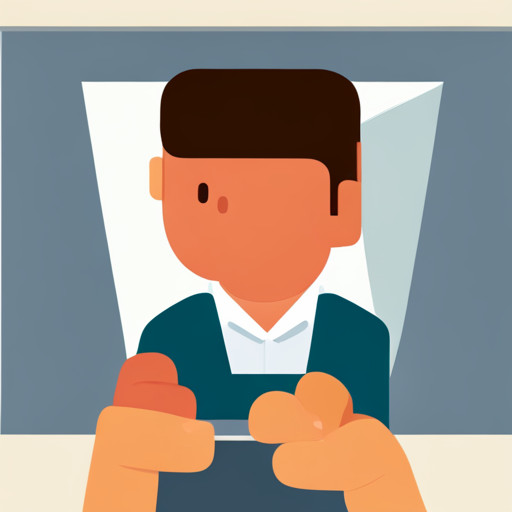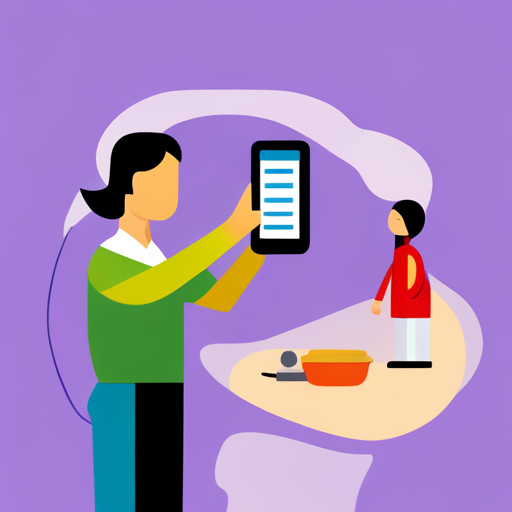Are you constantly checking your phone, even when there’s no notification? Do you feel anxious or upset when your phone battery runs low? If so, you might be married to your cell phone. Cell phone addiction is a growing problem in today’s society, with people spending an average of three hours per day on their phones.
The prevalence of social media, messaging apps, and games has made it easy for us to become reliant on our devices. But this addiction can have negative effects on our mental health and relationships. It’s important to recognize the signs of cell phone addiction and take steps towards breaking free from it.
Key Takeaways
– Cell phone addiction is a growing problem that can lead to negative effects on mental health and relationships.
– It is important to set boundaries and limitations to maintain a healthy relationship with your phone, such as designating specific times of day to not use your phone and engaging in alternative activities.
– Limiting cell phone use can boost productivity and improve focus in daily tasks.
– Seeking professional help from a therapist who specializes in addiction is an option for those struggling with cell phone addiction, but there may be challenges such as cost, time, and stigma attached to seeking help.
Signs of Cell Phone Addiction

You’re probably aware that you’re addicted to your phone if you find it hard to resist checking it every few minutes, even when there’s no important notification. You might feel anxious or restless when your phone is out of reach, and constantly need to hold or play with it. You may also be hooked on social media, endlessly scrolling through feeds and liking posts.
Another sign of cell phone addiction is neglecting face-to-face interactions in favor of virtual ones. If you find yourself preferring to text or message people instead of calling or meeting up with them, it may be a red flag. Additionally, you might experience physical symptoms like eye strain, headaches, and neck pain from staring at screens for extended periods.
Recognizing the signs of cell phone addiction can help you take steps towards a healthier relationship with technology. However, being aware isn’t enough – as we’ll discuss next – the negative effects of this addiction can have serious consequences on our mental health and personal lives.
Negative Effects of Cell Phone Addiction

You may not realize it, but your cell phone addiction can have some serious negative effects on your life. For starters, excessive cell phone use can lead to mental health consequences such as anxiety and depression. It can also strain your relationships with loved ones and reduce your productivity and focus at work or school. It’s important to recognize these negative effects so that you can take steps to manage your cell phone usage and improve your overall well-being.
Mental Health Consequences
It’s absolutely impossible to function without your cell phone, and the mental health consequences of being so attached are severe. You may not realize it, but constantly checking your phone can lead to anxiety and depression. The constant barrage of notifications and messages can make you feel like you’re always on call, which in turn leads to stress and fatigue. This can also affect your sleep patterns, making it difficult for you to get a restful night’s sleep.
In addition to these issues, excessive cell phone use has been linked to poor concentration and memory retention. It’s easy to get lost scrolling through social media or playing games, but this takes away from time that could be spent doing something productive or meaningful. All of these factors combined can have a significant impact on your mental health over time. And unfortunately, the negative effects don’t stop there – excessive cell phone use can also strain your relationships with loved ones.
Relationship Strain
When constantly glued to your device, it can strain important relationships with friends and family. You may find yourself ignoring loved ones in favor of scrolling through social media or answering work emails. This behavior can lead to feelings of neglect and resentment from those around you.
To avoid relationship strain caused by excessive cell phone use, try implementing the following tips:
– Set aside designated times to check your phone, such as during a break at work or after dinner
– Turn off notifications for non-essential apps
– Make an effort to engage in face-to-face conversation without checking your phone
– Consider leaving your phone at home during activities with loved ones
By taking steps to limit your cell phone use and prioritize relationships, you can improve communication and strengthen bonds with those closest to you. Additionally, reducing screen time may also improve productivity and focus in other areas of your life.
Reduced Productivity and Focus
Limiting cell phone use can boost productivity and improve focus in daily tasks. According to a study conducted by the University of California, Irvine, it takes an average of 23 minutes and 15 seconds for a person to return to their original task after being interrupted by their phone. This means that constantly checking your phone throughout the day can significantly reduce your ability to concentrate on important tasks.
To better understand how often you are distracted by your phone, try tracking your usage for a few days. Use the table below to record how many times you check your phone each hour during work or while completing other tasks. Once you have identified how often you are being interrupted, make a conscious effort to limit your usage during certain hours of the day when productivity is most essential.
| Hour | Number of Times Checked |
|---|---|
| —— | ———————– |
| 8am | 6 |
| 9am | 3 |
| 10am | 9 |
Transition: By reducing cell phone distractions, you can increase both productivity and focus in daily life. However, breaking free from cell phone addiction may be easier said than done. Here are some tips to help you disconnect from technology and establish healthier habits.
Tips for Breaking Free from Cell Phone Addiction

So you’ve realized that your cell phone addiction is negatively impacting your life and you’re ready to make a change. Setting boundaries and limitations for yourself is a great place to start. Try designating specific times of day where you put your phone away or turn off notifications. Engaging in alternative activities, like exercising or spending time with loved ones, can also help break the cycle of constantly checking your phone. And if you’re really struggling, don’t hesitate to seek professional help from a therapist who specializes in addiction.
Setting Boundaries and Limitations
You may feel like your cell phone is an extension of yourself, but setting boundaries and limitations can help you maintain a healthy relationship with it. Here are some tips to get started:
– Set specific times during the day when you will not use your phone, such as during meals or before bedtime.
– Turn off notifications for apps that don’t require immediate attention.
– Use the “Do Not Disturb”mode during certain hours, such as when you’re working or spending time with loved ones.
– Keep your phone out of reach while driving or engaging in other potentially dangerous activities.
– Consider leaving your phone at home for short periods of time when running errands or going on outings.
By setting boundaries and limitations, you can reduce the amount of time and energy you spend on your cell phone each day. This frees up more opportunities to engage in alternative activities, such as spending quality time with family and friends, reading a book, or exploring new hobbies.
Engaging in Alternative Activities
Engaging in alternative activities can provide a much-needed break from the constant attachment to technology. Instead of mindlessly scrolling through social media, consider picking up a hobby or participating in physical activity. Not only will this help you disconnect from your phone, but it will also improve your overall well-being.
Some ideas for alternative activities include reading a book, going for a walk or run outside, practicing yoga or meditation, learning a new skill like cooking or painting, or even just spending quality time with loved ones. By intentionally choosing to engage in these types of activities instead of reaching for your phone, you may find that you feel more present and fulfilled in your daily life.
Transitioning into seeking professional help can be difficult when feeling overwhelmed by technology use. However, there are resources available to assist individuals struggling with addiction to their cell phones.
Seeking Professional Help
Like a ship lost in a storm, it can be overwhelming to navigate addiction to technology alone, but seeking professional help can provide the necessary guidance and support to find your way back to calm waters. Whether it’s through therapy or counseling, professionals trained in treating technology addiction can offer valuable insights into why you may be using your cell phone excessively and help you develop healthy alternatives.
To give you an idea of what seeking professional help might entail, consider this table:
| Pros | Cons |
|---|---|
| Tailored treatment plan | Costly |
| Objective guidance | Time-consuming |
| Accountability partner | Stigma attached to seeking help |
| Access to specialized resources | Fear of judgment |
As with any form of addiction recovery, there will be challenges along the way. However, the benefits of overcoming cell phone addiction are well worth the effort. By taking steps towards healing now, you can begin cultivating positive habits that will serve you for years to come.
Maintaining Healthy Cell Phone Habits

Don’t let your cell phone control your life; instead, focus on developing healthy habits that prioritize your well-being. It’s easy to get sucked into the endless scroll of social media or the constant need to check emails and messages, but it’s important to remember that you are in control of how much time you spend on your phone. Here are some tips for maintaining healthy cell phone habits:
– Set boundaries: Determine specific times during the day when you will not use your phone, such as during meals or before bed. Stick to these boundaries and use this time to engage in other activities like reading or spending quality time with loved ones.
– Turn off notifications: The constant buzzing and beeping of notifications can be distracting and stressful. Take control by turning off non-essential notifications or using the “Do Not Disturb”feature during certain times of the day.
– Take breaks: Just like any other activity, it’s important to take breaks from using your phone. Try going for a walk without your phone or leaving it behind when running errands.
– Practice mindfulness: When you do use your phone, try practicing mindfulness by being fully present in the moment. Avoid multitasking and focus solely on what you’re doing on your device.
By implementing these simple strategies, you can maintain healthy habits when it comes to using your cell phone. Remember that technology should enhance our lives, not consume them. Prioritize self-care and make conscious choices about how much time you spend on your device each day.
Frequently Asked Questions
How do you know if you are addicted to your cell phone?
If you constantly check your phone, feel anxious without it, or prioritize it over other activities and relationships, you may be addicted. Seek help reducing usage and finding healthier ways to connect.
Can cell phone addiction lead to physical health problems?
You may not realize it, but your cell phone addiction could be causing physical health problems. From eye strain to posture issues and even sleep disturbances, excessive phone use can take a toll on your body.
What are the long-term effects of cell phone addiction?
Long-term effects of cell phone addiction include anxiety, depression, sleep disorders, eye strain, neck and back pain. It can also lead to social isolation and a decrease in face-to-face communication skills.
Are there any benefits to using your cell phone in moderation?
Using your cell phone in moderation can have benefits, such as staying connected with loved ones, accessing helpful information, and improving productivity. However, excessive use can lead to negative effects on mental health and relationships.
How can you encourage others to break free from cell phone addiction?
Encourage others to break free from cell phone addiction by suggesting alternative activities, setting designated times for phone use, and modeling healthy behavior. Remind them of the benefits of being present in the moment.
Conclusion
Congratulations on taking the first step towards recognizing your cell phone addiction. It’s easy to get sucked into the constant stream of notifications, messages and social media updates, but it’s important to understand the negative effects it can have on your mental health and relationships.
By implementing healthy habits and setting boundaries with your phone, you can break free from the grip of addiction. Remember that it’s okay to disconnect and focus on real-life interactions with loved ones. For example, take a page out of John’s book: he used to be glued to his phone all day until he realized it was straining his relationship with his wife. So he started leaving his phone at home during date nights and found himself more present in the moment than ever before.
In conclusion, don’t let your cell phone control your life. Take control by recognizing signs of addiction, understanding its negative effects, and implementing healthy habits for a happier and healthier future.

